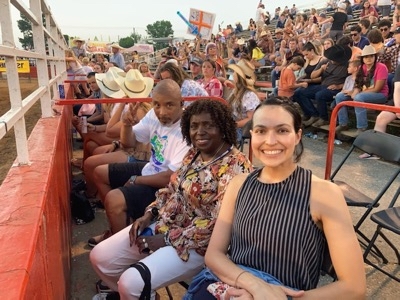Over the summer, the U of A Humanities Center, along with the African and African American Studies and Medical Humanities Programs, hosted K-12 educators from across the nation for special professional development workshops funded by the National Endowment for the Humanities.
The two NEH Summer Teaching Institutes brought in more than $346,000 in federal grant funds to the university and region.
The first institute, "The Local and International Legacies of Nelson Hackett's Flight from Slavery, 1841-1861" focused on the story of a fugitive enslaved man from Fayetteville whose return from Canada set off an international incident that ended with Canada becoming a safe haven thereafter.
The second institute, "Pandemics in History, Literature and Today" featured an interdisciplinary team of university, medical and community experts who took participants through the 1918 influenza pandemic to consider how to integrate these lessons into history, science and literature curricula.
Nelson Hackett's Flight from Slavery
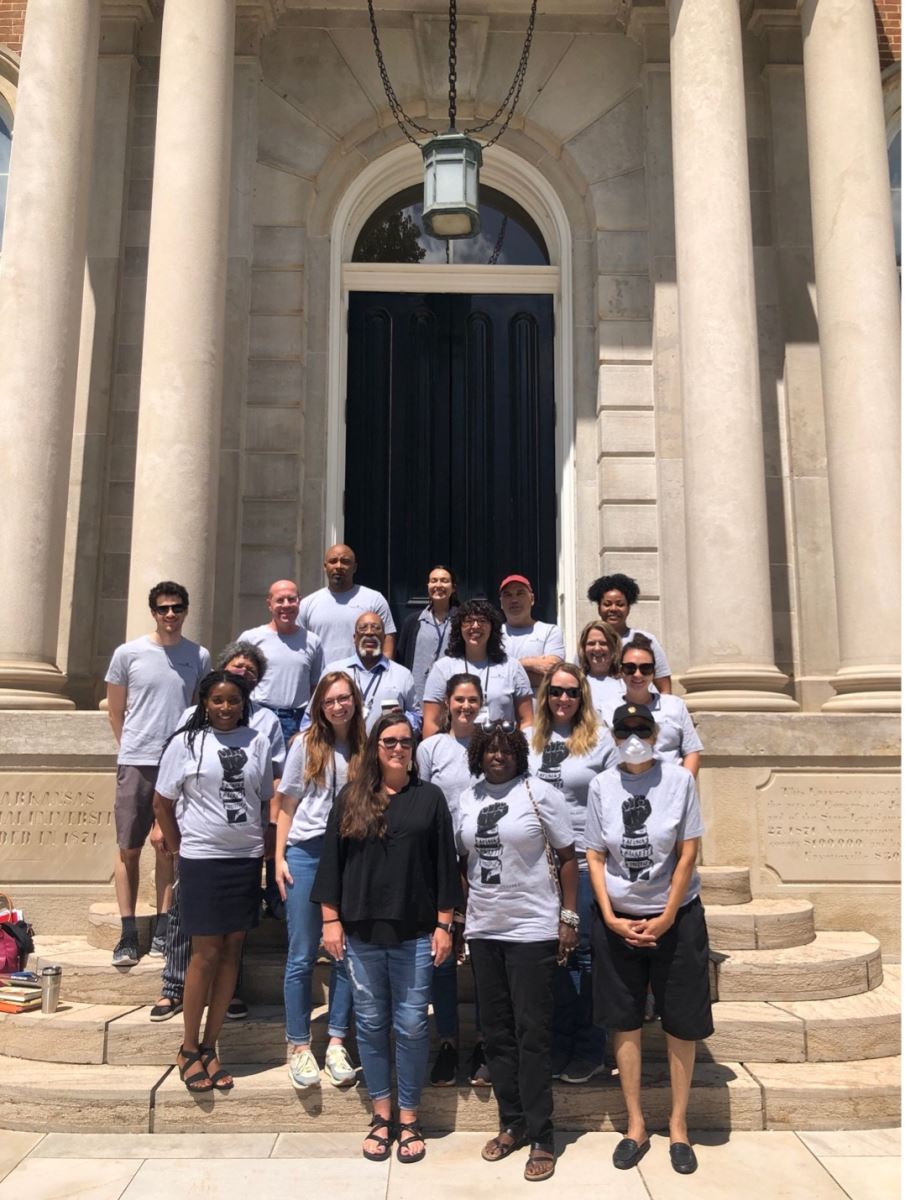 Guided through Hackett's history by Caree Banton, associate professor and director of the U of A's African and African American Studies Program, and Michael Pierce, associate professor in the Department of History and director of The Nelson Hackett Project, participants learned about Hackett's flight and the importance of fugitive slaves to the sectional crisis.
Guided through Hackett's history by Caree Banton, associate professor and director of the U of A's African and African American Studies Program, and Michael Pierce, associate professor in the Department of History and director of The Nelson Hackett Project, participants learned about Hackett's flight and the importance of fugitive slaves to the sectional crisis.
Additionally, participants visited archives with Washington County Judge Joseph Wood, the first African American county judge in Arkansas, to see the records of enslavement in the area and toured the African American cemetery on Mount Sequoyah with Sharon Killian, founder and president of the Northwest Arkansas Black Heritage Association.
Participants also explored free electronic teaching resources for the history of slavery with scholars from the National Park Service's Network to Freedom Project and the Freedom on the Move digital humanities project. Curriculum and Instruction professor emerita Charlene Johnson and Owl Creek Middle School's Synetra Morris helped participants integrate these stories and resources in grade and field appropriate lesson plans.
The Nelson Hackett-focused NEH Summer Teaching Institute was also the latest outcome from The Nelson Hackett Project, a digital humanities site that follows Hackett's journey with maps, documents and explanatory essays.
"With this institute, not only did educators get to know the beauties and opportunities of our campus, but the story of this Fayetteville man will now be able to become part of lesson plans and curriculums used in K-12 schools across the nation," said Charles F. Robinson, U of A's interim chancellor and professor of history.
Pandemics in History, Literature and Today
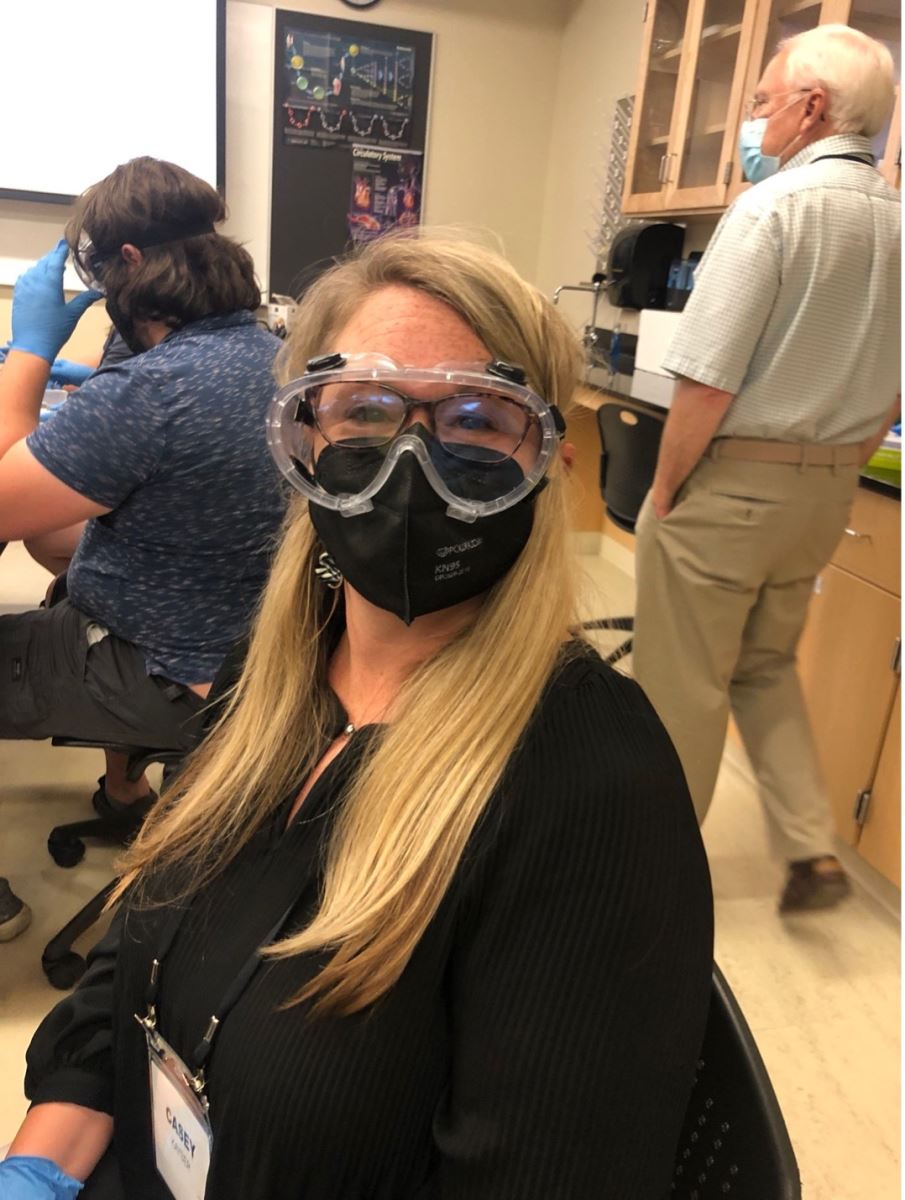 The second institute, focused on "Pandemics in History, Literature and Today," featured university and community experts in medicine, history, literature, oral history and science education, including Casey Kayser, associate professor of English and director of the Medical Humanities Program, and history professor Tricia Starks, as well as the Pryor Center's Susan Kendrick-Parry and Coty Nichols of Fayetteville High School.
The second institute, focused on "Pandemics in History, Literature and Today," featured university and community experts in medicine, history, literature, oral history and science education, including Casey Kayser, associate professor of English and director of the Medical Humanities Program, and history professor Tricia Starks, as well as the Pryor Center's Susan Kendrick-Parry and Coty Nichols of Fayetteville High School.
Participants in the pandemics-focused NEH Summer Teaching Institute learned the history of the 1918 influenza epidemic, read novels and discussed poetry from around the world and examined artwork and music created from the period.
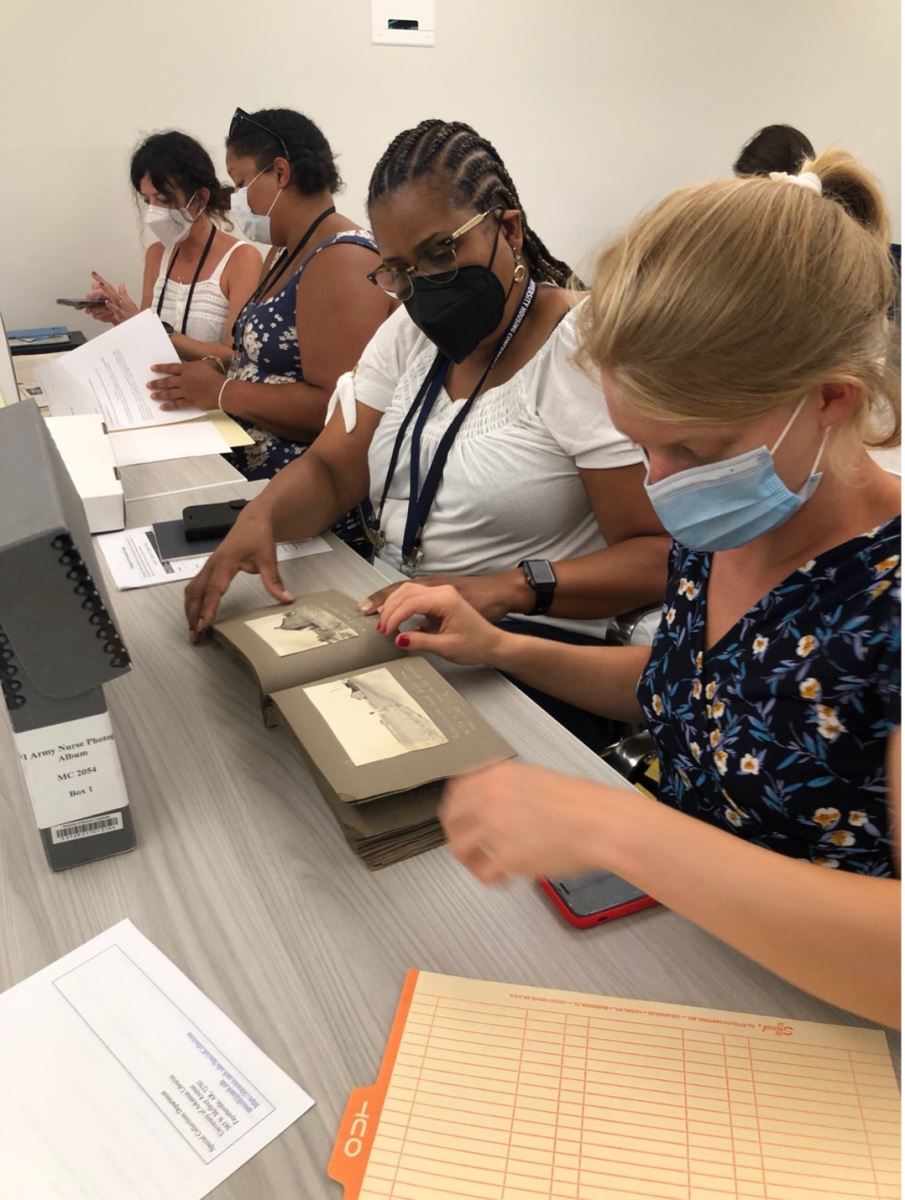 Additionally, Bill McComas, Curriculum and Instruction's Parks Professor of Science Education, led exercises on contagion, disease transfer and virology that used the latest science and exciting interactive teaching, and Micah Hester, chair of the UAMS Department of Medical Humanities and Bioethics, challenged participants to engage with the ethical and philosophical challenges of public health.
Additionally, Bill McComas, Curriculum and Instruction's Parks Professor of Science Education, led exercises on contagion, disease transfer and virology that used the latest science and exciting interactive teaching, and Micah Hester, chair of the UAMS Department of Medical Humanities and Bioethics, challenged participants to engage with the ethical and philosophical challenges of public health.
Participants were also urged to consider today's historical moment by examining oral histories of COVID collected by University of Arkansas Libraries' Amy Allen and Arkansas Folk and Traditional Arts' Virginia Siegel and collecting their own oral histories of COVID.
Kendrick-Parry and the team at the Pryor Center also showed participants how to create oral history projects for students, while Nichols helped educators develop grade-appropriate historical and interdisciplinary lesson plans.
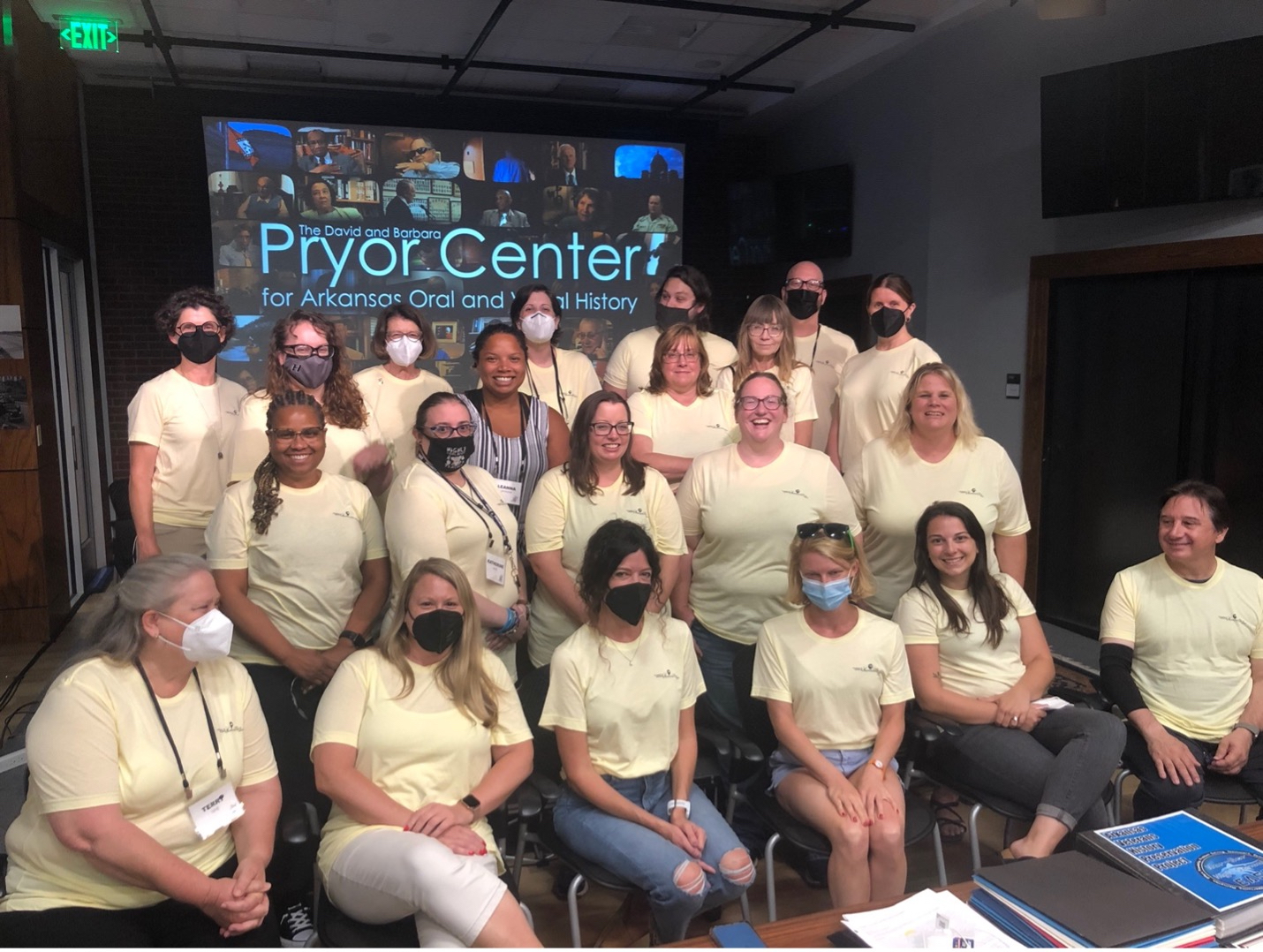 Participants in both institutes stayed in University Housing and took time after course work to explore the Northwest Arkansas region's joys — from rodeos to bathhouses.
Participants in both institutes stayed in University Housing and took time after course work to explore the Northwest Arkansas region's joys — from rodeos to bathhouses.
As one participant shared in a social media post to a group with thousands of other educators, "This workshop was phenomenal for so many reasons, including the opportunity to learn from a diverse circle of educators and find community in other lifelong learners."
Kathryn Sloan, interim dean of the U of A's Fulbright College for Arts and Sciences, also noted the importance of these institutes to the university and region.
"These institutes brought our top-notch researchers and award-winning teachers into direct contact with motivated educators to fulfill the university's land-grant mission — which is to serve Arkansas and the world," Sloan said. "These institutes and all who made them possible showed Arkansas and the U of A at its best."
Topics
- Education
- Lectures, Colloquia & Symposia
- Science
- Humanities
- Training & Workshops
- College of Education and Health Professions
- Fulbright College of Arts & Sciences
- Division of Student Affairs
- University Libraries
- African and African American Studies Program
- Department of English
- Department of History
- University Housing
- Department of Curriculum and Education
- Pryor Center for Arkansas Oral & Visual History
Contacts
Tricia Starks, professor and director
University of Arkansas Humanities Center
479-575-7592,
Andra Parrish Liwag, director of communications
Fulbright College of Arts and Sciences
479-575-4393,
